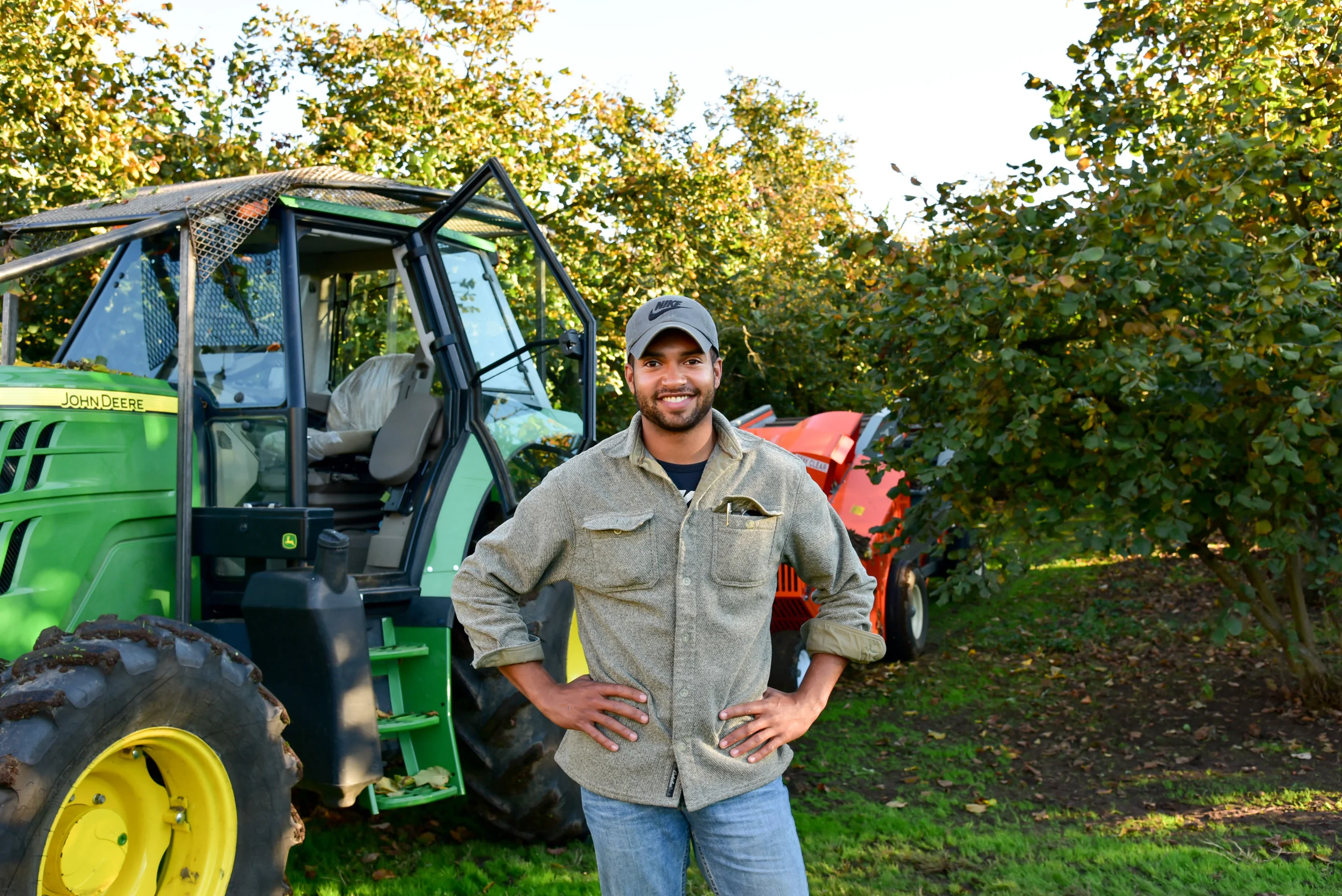“It’s the ultimate compliment to have your child take over the family farm,” says Warren Harper, of Harper Farms in Junction City, Oregon, the heart of the Willamette Valley. Bryan Harper has done just that—he’s stepped up to be the fifth generation at the helm of Harper Farms.
But as Bryan says, “I wasn’t grooming to be in agriculture.” He focused instead on becoming a pilot, pursuing his love of flying all the way to Embry-Riddle Aeronautical University in Florida. It wasn’t the right fit. He returned home, and when an opportunity to run track at University of Oregon came up, he took it. All the while, he helped out on the farm—a constant for Bryan since he started pulling weeds with his Grandma at age 5.
Bryan’s successful track career and psychology degree provided him with knowledge on how to work with, and motivate, people. An essential foundation for business leadership and a successful farm transfer.
Harper Farms has grown almost every crop possible in the Valley on their 1200-acre farm. But it’s the orchard, 450 acres of hazelnuts, that defines them. The orchards range from three years old to the 86-year-old orchard that Bryan’s grandfather planted. They also grow specialty seed and sustainably manage Douglas fir timber.
A family meeting after Bryan graduated in 2012 set the family on a new course: it was time to think about the future of the farm, Bryan’s Dad had been in the driver’s seat of the family farm since 1973. Was Bryan willing and ready to take over? The alternative—selling off land that had been in the family for 125 years—didn’t sit well with him. In 2015, Bryan became VP of Harper Farms.
Son and father echo each other about the challenges of transferring the farm. Warren says, “It’s always going to be different with each generation. Not bad or good. But it can be hard to take that there’s a different world every generation.” And Bryan says, “the biggest thing is trusting the next generation, we want to make improvements for the future while also respecting elders.”
Bryan also says: “start early. It is not quick and easy, there are a lot of layers to peel back. Find a good mediator that has a style appropriate for your family. Be sure to interview a few first, there are a lot of resources out there, but you have to find the right fit. It’s not cheap, but it’s cheaper than losing your operation. We’ve worked with a succession planner, Mark Wickman, for three years. Mark’s steered us through the tough conversations to get us where we are today. He planner creates an atmosphere where we can break down the business wall and be compassionate with each other. We’re better at communicating as a family now.”
Harper Farms was incorporated as a Limited Liability Company (LLC) in 1974 – a helpful tool to transition the farm for both Warren and Bryan. Setting up a formal business entity like an LLC gives you the opportunity to set up a clear set of ground rules for transition. It also helps you transfer the business as a whole, not just as individual assets. Another advantage the Harpers have is a strong team of four full-time employees who have worked on the farm for decades.
Transferring the farm is a process that continues today: Bryan knows it’s important to find and define roles for all family members who want to be involved. The latest addition to the family farm roster is Bryan’s sister, Tiffany.
Bryan enjoyed and was humbled by his role as a liaison for farmers as President of the Lane County Farm Bureau – a role that he is now passing on to his sister. And, he’s excited to be exploring new processes like vertical integration and new markets, from international to local, for the farm.
Warren’s embracing his new and different calendar. He says, “Most farmers don’t retire, they just change their role. It’s part of the process of growing as a person, you have to enjoy every part of it. Letting go of the routine is a good thing.”
by Ashley Rood

